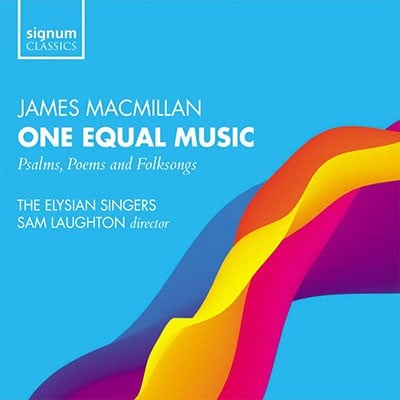Ps 81: 1-4 (Geneva Bible) (English, 16th century)
Abbreviations (PDF)
Boosey & Hawkes
This short work was written as a "choral fanfare" for David Hill to mark the 140th anniversary of the Bach Choir. It is a setting of some joyful lines from Psalm 81, evoking musical instruments and especially the trumpet. I used to be a trumpeter myself and I try here to fuse the sound of the brassy fanfare into a purely choral sound, unaccompanied and full of extrovert and bold figures and passagework.
Reproduction Rights
This programme note can be reproduced free of charge in concert programmes with a credit to the composer.
Choral level of difficulty: 4 (5 greatest)
This work was a commission from The Bach Choir in celebration of their 140th anniversary in 2017. MacMillan uses words well-known in their setting by William Byrd from Psalm 81; ‘Sing joyfully unto God our strength’. MacMillan writes of it that it ‘evokes musical instruments and especially the trumpet. I used to be a trumpeter myself and I try here to fuse the sound of the brassy fanfare into a purely choral sound, unaccompanied and full of extrovert and bold figures and passagework’.
The motet is written for one of the most expert amateur choirs in the UK and MacMillan has certainly taken advantage of their expertise and virtuosity – especially in the singing of fast moving passagework – to create an explosion of joyful celebration. Rather as in his Alleluia, the piece is all about effect, using different textures, counterpoint, chordal outbursts, and the musical inspiration taken from text to produce what can only be described as a riot of sound at points. It divides into eleven parts occasionally with four soprano and four alto parts making the point that this motet is not intended for a small choir.
This is a challenging piece, but for those up to that challenge it will be an exercise in expressing pure, unalloyed joy!
Repertoire Note by Paul Spicer

The Elysian Singers/Sam Laughton
Signum SIGCD575

